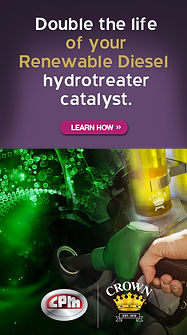- University of Dayton
University of Dayton researchers on NREL team fast-track food waste into SAF

University of Dayton researchers have helped a U.S. DOE National Renewable Energy Laboratory team take another step toward turning wet food waste into a sustainable aviation fuel (SAF).
Large aviation companies like Southwest Airlines are taking notice of the group’s work in the DOE’s wet waste flight demonstration project to find a biorefining process to produce SAF compatible with existing jet engines and capable of supporting net-zero flight. Net-zero is the point where the reduction of carbon emissions balances what's emitted by jet engines.
Josh Heyne, a University of Dayton aerospace engineering researcher and national expert on SAF testing, and engineering graduate student Zhibin Yang, contributed to NREL’s work by evaluating about a dozen fuel samples from NREL to focus compositions to meet ASTM requirements. Heyne anticipates ASTM International could qualify this SAF for commercial airline use within one year of NREL production scale-up.
The Proceedings of the National Academy of Sciences published the group’s findings the week of March 15.
Heyne and his team were the first in the nation to establish formal recommendations for the prescreening of alternative aviation fuels for their viability to enter the ASTM International testing program.
Through ASTM International, formerly known as American Society for Testing and Materials, more than 30,000 people from 150 countries create and update standards driven by the expertise and judgment of industry, government, academic, trade and consumer groups experts, among others. NREL advances the science and engineering of energy efficiency, sustainable transportation and renewable power technologies, and provides the knowledge to integrate and optimize energy systems.
“If our refining pathway is scaled up, it could take as little as a year or two for airlines like Southwest to get the regulatory approvals they need to start using wet waste SAF in commercial flights,” said NREL scientist Derek Vardon, lead author of the paper. “That means net-zero-carbon flights are on the horizon earlier than some might have thought.”
The team’s fuel from food waste resulted in a 165 percent drop in net carbon emissions compared to fossil jet fuel, not only because it’s cleaner, but also because the process removes millions of tons of food waste from landfills nationwide where it would produce methane, a greenhouse gas more than 20 times more potent than carbon dioxide.
NREL’s analysis team has shown U.S. wet waste, including food waste, has enough energy content to replace about 20 percent of U.S. jet fuel consumption.
Previous research showed producing fuel from wet waste is possible but, until now, did not show how such fuel could meet ASTM International’s fuel property requirements. Several large U.S. airlines already are using SAF but still are on the quest to find low-carbon versions in development by the NREL team to help meet their environmental goals.
“Meeting ASTM standards is mandatory for the use and deployment of new sustainable aviation fuel by industry,” Vardon said. “Our paper shows we can make drop-in sustainable aviation fuel that meets those standards, with analysis that reveals how to refine it so airlines can utilize large amounts without sacrificing performance.”
The group aspires to someday blend up to 70 percent of a version of its SAF with conventional jet fuel.
“Our SAF route is not a silver bullet,” Vardon added, “but as a piece of the puzzle it could make a significant dent in an industry notoriously hard to decarbonize.”
This work was supported by DOE’s Bioenergy Technologies Office “Opportunities in Biojet” program, as well as the Chemical Catalysis for Bioenergy Consortium. For more information, explore NREL’s catalytical carbon transformation research.




















-adjusted-to-spec.jpg)



